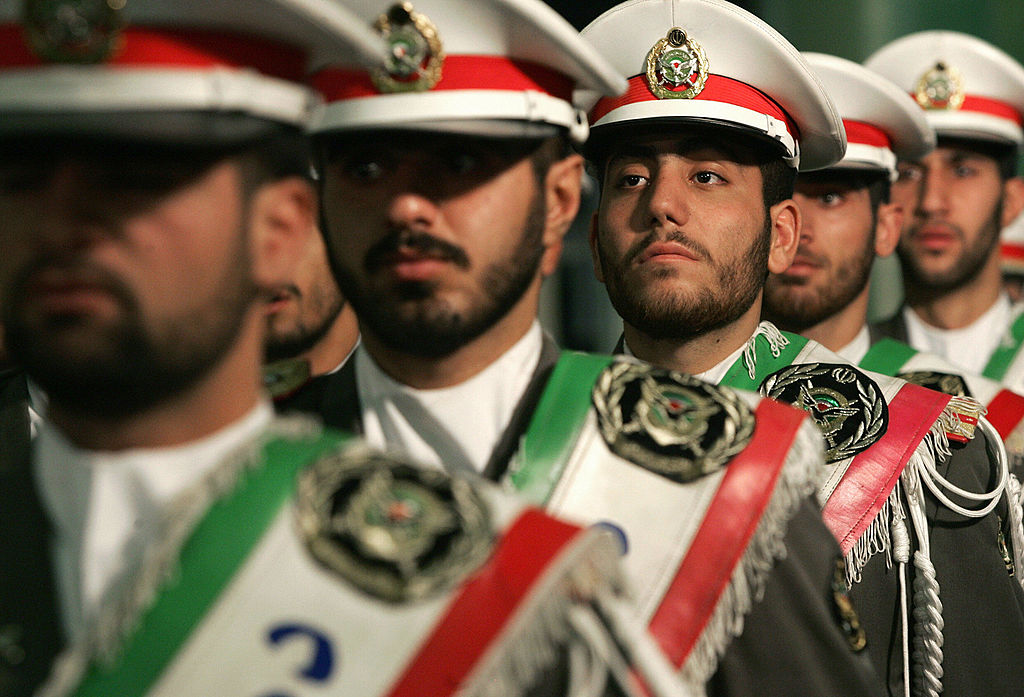Over the weekend, what appeared to be an Iranian news agency account posted online what can only be described as a cutesy infographic for a missile. It didn’t look like the usual military imagery, more a cross between something your politically engaged little sister would post to her Instagram story and a Coachella poster. The tweet caption read (in Arabic): “Hajj Qassem missile…the missile designed to target ‘Israel’.” The post’s slick graphics and engagement-optimised formatting exemplified something increasingly true about our global political landscape: to be heard above the cacophony of distractions, politics must — and increasingly does — speak in memes.
Our current information landscape reveals this dynamic everywhere. When the war in Ukraine started in 2022, the country’s official Twitter account posted numerous memes, including one from The Simpsons, about the conflict. Just last week, the Catholic Church unveiled “Luce”, an anime girl mascot who instantly went viral and spawned an entire ecosystem of fan art. As Mary Harrington observed, the demographic shrewdness of the Vatican evoking anime aesthetics was almost irrelevant. Luce succeeded because she possessed raw memetic power, something which the Bible is lacking these days. The mascot’s ability to generate engagement and inspire derivative content was more salient than anything else.
The recent controversy about rumours of Haitian immigrants in Springfield, Ohio eating dogs and cats is another example of why memes matter. The story began with a viral X post and gained momentum through high-engagement Facebook posts. The claim’s truthfulness was secondary to its shareability, which hinged in part on its “emotional truth”. Its memetic power eventually drove it from X and Facebook to the presidential debate stage, forcing responses from Ohio’s Governor and the White House. When vice-presidential nominee J.D. Vance urged followers to “keep the cat memes flowing”, he acknowledged this new reality: in modern politics, memetic reach is invaluable.
In a Missouri State Journal interview, Dr Brian Ott explains just how much our media landscape has transformed in recent years. Just as television once collapsed the boundary between entertainment and news by forcing serious journalism to compete with sitcoms, social media has created what Ott calls “a giant river of stuff”— a single algorithmic feed where congressional hearings and war footage compete with mukbang for attention. It’s television, which itself created the 24-hour news cycle, on steroids.
This shift is quantifiable: Pew Research reports that 39% of adults under 30 now get their news primarily from TikTok. And while TikTok has been perhaps unfairly characterised as “brain rot”, it’s true that you need a hook to make sure people don’t keep swiping. Ott says that “memes are not an argument.” Maybe not — but they aren’t meaningless, either.
In this landscape, even seemingly apolitical viral content inevitably becomes political. When P’Nut, a squirrel with half a million Instagram followers, was euthanised by New York state authorities a few days ago, the tragedy instantly transformed into a partisan battleground. Republicans were some of P’Nut’s biggest defenders, and he became a symbol of Left-wing bureaucratic overreach.
There’s one way in which this is a meaningful change. Research suggests memes function as a new form of political organisation, creating communities that can rapidly mobilise around shared meanings and grievances. That is to say: it’s not just people up in arms over silly, ephemeral things. It’s a legitimate tool. As politics becomes increasingly memetic, meme-makers increasingly turn to politics, too.
The relevance of memes cuts both ways. Traditional institutions must either adapt to memetic logic or risk irrelevance, which explains why even diplomats and defence departments now employ social-media strategists. Political careers increasingly begin with viral moments rather than policy expertise, reflecting how thoroughly the logic of memes has transformed political communication.
The Iran missile advertisement, then, isn’t that weird. It’s a window into how power operates in 2024. When even nuclear deterrence must package itself as content, the logic of memes has transformed political communication. And when they’re successful, they’re really successful. But more importantly, we see why meme-makers increasingly seek political relevance, too. In a world where traditional fame feels increasingly hollow, politics remains one of the few spaces where going viral can mean something.











Join the discussion
Join like minded readers that support our journalism by becoming a paid subscriber
To join the discussion in the comments, become a paid subscriber.
Join like minded readers that support our journalism, read unlimited articles and enjoy other subscriber-only benefits.
Subscribe